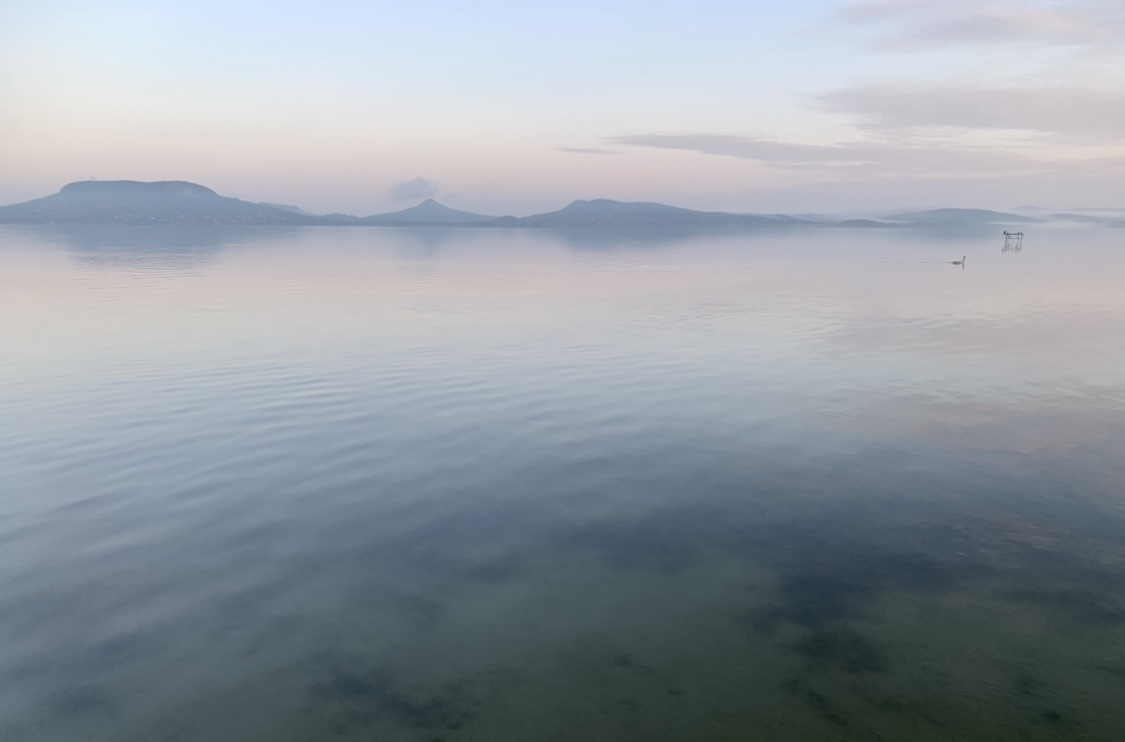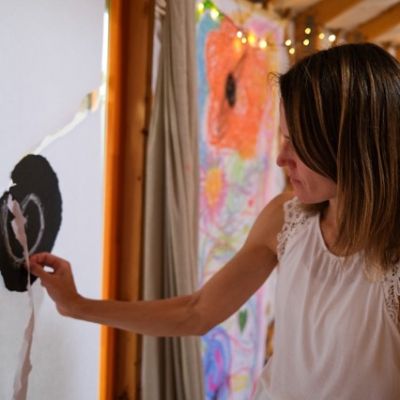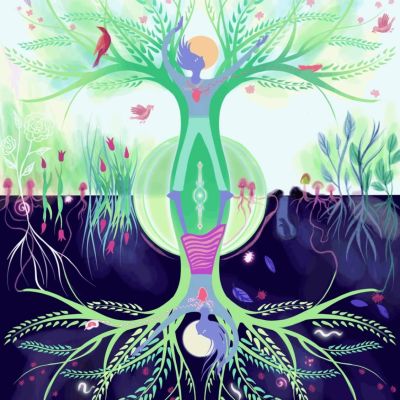Cars on ice and our nervous system
We feel overwhelmed when the world around us is changing faster than our nervous system and psyche can handle.
(Jon Kabat-Zinn)

It seems that many of us are currently in a state of hypervigilance and exhaustion.
This is not surprising, because we are not wired for this: our bodies, our brains, our nervous systems. Nothing about us is designed for the pace of life today. But that’s how it is, it’s happening, we’re in it.
In her latest podcast, Brené Brown talks to futurist Amy Webb, who says that what is happening now is like hitting a large patch of ice while driving: our first impulse would be to slam on the brakes—but that doesn’t help, it won’t help us regain control. Quite the contrary.
In order to have any chance of navigating our way through, we have to make a lot of small decisions very quickly, one after the other, while constantly paying attention to what is happening.
They talk about how AI, wearable technology, and biotechnology together create a super-spiral that is transforming the world so rapidly that he calls those who are alive today the Transition Generation. Gen T, or Generation Transition.
Whether we like it or not, we must be able to navigate the unpredictable.
And what skills do we need to do this? According to the podcast, critical, forward-thinking thinking and the ability to live with paradoxes. To be able to tolerate the tension of contradictory things being true at the same time.
Everything changes every day, novelty is the new norm, yet we must not give up on long-term planning and forward thinking.
We need to have a vision AND we need to be able to constantly adapt it to circumstances.
But how can critical, forward thinking guide us when we are fundamentally “not thinking beings who happen to feel, but feeling beings who sometimes think…”?
(This quote is also from Brené Brown). When everything that is happening in the world is a challenge to our bodies, our brains, our nervous systems…
I don’t have a new answer, just the usual one: we need to let ourselves into our bodies, pay attention to the one who senses all these things; learn to calm our nerves (or shake ourselves up if necessary); move, breathe, find ways to prevent ourselves from being overwhelmed by anxiety or apathy. Because when we are stressed, we don’t make good decisions.
Spring is a huge gift, with lots of sunshine and the scent of flowers—take advantage of it, go outside!
And dance! Outside, inside, in the garden, on the terrace, in class, and at home.
In dance, we do exactly what we should do in the car on ice in the metaphor above: we “decide” on the next move moment by moment, letting our body lead, letting the process lead, letting go of rational control, and alertly following the unfolding dance.





